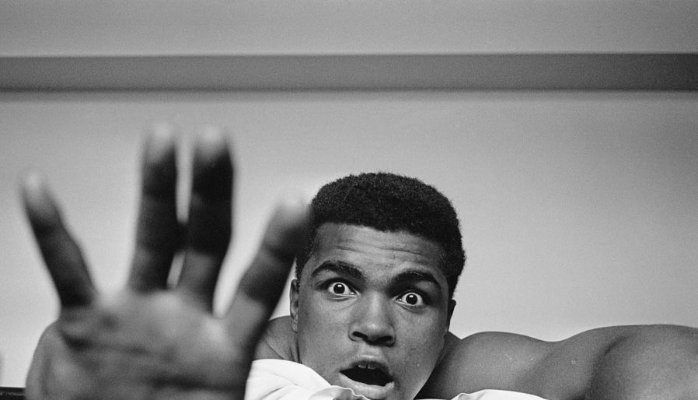Yaa Asantewaa, Kwame Nkrumah, The Big 6, 1957, June 4th; regardless of the sentiments that these references elicit when you read about them, they all carry significance well beyond the periods to which they refer. That persistent recollection of their importance by most Ghanaians is what we call legacy.
I sat, undoubtedly like many other people, pondering the ongoing development that was the culmination of arguably the most divisive, most ludicrous, least palatable, elevation to the highest office in the world. The name that blights or graces the West side highway in Manhattan, depending on your perspective of the man – is about to be the most powerful name in the world.
Trump to a large extent represents the exact opposite of everything Obama stands for, from the trivial in his physical appearance to the sophisticated nuance of the detailed profoundness of his approach to policy and political doctrine. It was an absolutely astounding outcome which shocked 60 million Americans and likely the rest of the observing world. Whichever way you look at it, Donald is now the man!
That word legacy sticks out and strikes me with such vigor – perhaps even more so than the crumbling feeling Obama must be experiencing at this very moment. Even more, the trepidation with which I approach this day and contemplate the next, the tentative depressive worry I harbor today when I consider that my three-year-old son will be at least seven years old and very aware of the world around him by the time the world and America have the next chance to opine on the course of this ship.
This is America, the greatest country in the world! How does this apply to you? Why does it matter what decisions you make today to assure the world after you is as you would have it? Why should you prepare for the next stage (we won’t call it the end) possibly even more than you plan for the present? It is because legacy matters – you are what you do and once you’re gone, you are what you leave behind.
Eighty-five per cent of businesses in Ghana are SMEs (Small and Medium Enterprises) and primarily family owned. However this article serves to speak to you, not as one of several thousand companies, but as an entrepreneur, as a business man or woman, as a family person, as a member of society. As you surmount challenges and achieve success in your endeavors, I set out a number of thoughts for you to deliberate on what’s next, on how you preserve the work of your hands – your legacy!
The business
In Neil Amato’s article “Succession Planning; The Challenge of What’s Next,” he suggests that less than 06 percent of sole proprietorships have commenced any form of succession planning. He goes on to say that when 52 percent of them were queried as to what they are doing to develop future leaders, they said “nothing.” It’s not because they don’t care, it’s either because the pressures of the ‘now’ so overwhelm the possibilities of the ‘future’ that no one has the time to pay attention to it, or because we fail to appreciate our own mortality.
Succession planning is the single most important aspect of preserving the credence of your company. It is seldom the case that anyone else can match the passion and commitment with which you have created for your company.
However, it is absolutely possible to find someone with the competence, drive and vision to continue to drive your vision. You may find that individual in your family or outside your inner circle – but you must invest diligently in finding that person as early as you can and subsequently groom them to take over from you – not when you’re on your last embers but when they are ready to take over from you.
Institutionalising the business
The concept of institutionalising your business refers to the idea that once you have your entity set up and running in a fashion that makes you comfortable, it is time to begin to put in place professional structures to ensure that it is on a sustainable, efficient, world class footing. In a sense the real reason America will survive or even thrive in a Donald Trump presidency is because their institutions work – no one individual, no matter how powerful can completely usurp the wheel that steers the affairs of the country.
It is important to institute a proper Board with independent, non-executive membership. You need to find the most capable individuals you can with as diverse a skill set and range of perspectives that you can muster and seek their counsel in running your business. No one doubts you know best what you wish to do; however, you will find that external perspectives can allow you to determine even better ways of achieving your goals while eliminating many of the common pitfalls of entrepreneurial ventures.
Need for succession plan
Brian Hughes tells us that “for family-owned businesses, strong governance is key to succession planning.” He goes on further to say, “succession planning is often especially challenging due to family dynamics and emotional considerations” and that succession planning “is also an area where independent directors can add enormous value —if they remain objective and maintain the family’s respect and trust.”
Management needs to be incentivised and held accountable. There is nothing wrong with placing your family in positions of authority; however, you need to set them up for success. There should be clear KPIs which they are fully qualified to achieve and they should be rewarded well for (out) performance.
The management team needs to be developed in line with your own plans for exiting the business. Particularly if you are a family business and intend to hand the reins to your children or family members, you ought to invest as much in grooming them as you have in building your business. You do neither yourself nor them any good if they ascend to your role with inadequate preparation.
A combination of academic tuition to learn the technical principles of your operations and on the job training with in-depth immersions in areas across the business will be crucial to ensure they are in a position to take over.
Your Finances
You need to secure the services of professional accounting and legal firms to handle your affairs. Accounting is one area that is often neglected in family businesses. You charge all personal expenses to the company anyway so it doesn’t matter whether or not cash is commingled and which cash flow streams are used for what. This opens you up to fraud and unrealized losses (cash or kind). It also makes planning difficult and challenges the viability of your business.
A professional accountant, whether one of the Big 4 (E&Y, KPMG, Deloitte, PwC) or an indigenous firm run by qualified Chartered Accountants, is hugely valuable to help you fully understand your financials and avoid unnecessary leakages. Tax evasion is unfortunately a common practice by Ghanaian businesses – it is illegal and could put you in serious jeopardy if discovered. Tax avoidance or tax optimization however is perfectly legal. A good accountant can show you how to manage your earnings and expenditures to minimise your tax obligations and retain the bulk of your earnings within your business.
Additionally, you can use proper accounting and budget planning techniques as a proactive strategy for driving your business rather than just reporting what has happened. Also, proper reporting of your financials ensures increased transparency which leads to trust from a range of stakeholders critical for your business. Banks, investors, suppliers and buyers will all be more eager to engage with you and be more supportive as operating partners, if they can trust that your financials are an accurate representation of the state of your business.
From a personal perspective, you may have built your entire net worth on your own having started from little or nothing, or you may have had a reasonable start and created a remarkably more outstanding financial position for yourself. In either case, sustaining these finances in later years and planning for the transfer of family wealth is critically important and often gets overlooked in our society.
This leads to difficulty later on in our lives and deep disputes once we’re gone. Increasingly, there are professional firms such as the recently launched Stanbic Bank Wealth and Investment division that are specifically focused on growth and preservation of wealth, and indeed your legacy, among other things.
Your primary focus should be on your business; nonetheless, you can never underrate the power of being able to say “I have a guy for that.” When you purposely identify and assign a wealth management firm to manage your assets, you can establish clear goals for what you require for your day to day livelihood and what you wish to set aside for the future. They will then do the heavy lifting to ensure that your assets are appropriately invested and more importantly you can rest in the comfort of knowing that your legacy is secure.
Reputational Issues
A good name before riches – reads like something someone must have said a long time ago but in light of my contemplation of the making of President Trump, it rings even louder. Ultimately, at the end of your days – professionally or indeed your life – money and wealth may be evident in the livelihood of your family, but the greatest asset will be what people remember you as. I would argue that you should guard your name and reputation even more closely than your money.
Here, I refer not just to your name as an individual but also of your business. Brand value or Goodwill is the most challenging asset to develop – it is priceless and is arguably the most compelling competitive advantage a company can have – largely because it cannot be legally duplicated.
As an individual, your focus will likely be on how business associates and employees regard you and whether you are viewed as a friend or not. Hopefully you are able to conduct business with the requisite discipline to achieve success and the associated notoriety. Whether or not you are wildly successful financially, it is possible to come to the end of your working life with a stellar reputation.
For your company, the most invaluable commodity remains your reputation as a good business partner, a decent member of the business community, or an exceptional employer or supplier or buyer. Consistently dealing fairly with customers, paying the right level of taxes, living up to the terms of agreements and promises to suppliers and buyers, all go a long way to establishing that reputation. As a business leader, your commitment to develop and reward your employees fairly for their service; being firm – yet prudent and fair – in your interactions with them further adds to this.
Ultimately the development of a positive reputation as a sound, dependable, reliable operator accrues to your benefit and increases the likelihood that your firm is sustained well beyond your time.
Conclusion
Ultimately, what you build in your lifetime has a potential to be entrenched as a value creating asset in perpetuity. It is crucial that you focus on effective succession planning as soon as feasible. The sooner you commit to diligently planning the future, the more comfortable you can be that you are building a truly sustainable enterprise.
It’s quite appropriate that an article which commenced with me contemplating the state of the political fabric in the US ends with the spirited conclusion to our own truly remarkable political saga. From the failed attempts to secure his party’s nomination to successive disappointments as the flag-bearer of the then leading opposition party, to what is now largely regarded as the most significant demonstration of the political maturity of our nation – Nana Addo Dankwa Akufo-Addo is our man! Notably, the one consistent theme of his political journey over the past decade and a half has been an unquestionable clarity that the President is a man who holds his reputation and indeed his legacy in high esteem. He has spent his lifetime accumulating an unparalleled repertoire of experience and qualifications for the high office of President and now he has the opportunity to bring that to bear for the benefit of us all. We all simply pray that he lives up to the high expectations we all hold for him.
Randolph Rodrigues is the Head of Investment Banking at Stanbic Bank. He has extensive experience in the financial services industry and in particular in Mergers & Acquisitions, having previously worked with Credit Suisse and Morgan Stanley in the US as well as in Corporate Finance as a member of the Corporate Development Group at Microsoft. He attended Cornell University, where he obtained his BA in Mathematics with a specialisation in Economics, and Harvard Business School for his MBA. Randolph returned to Ghana in 2011 as Head of Mergers & Acquisitions at Stanbic Bank before assuming his current role.








